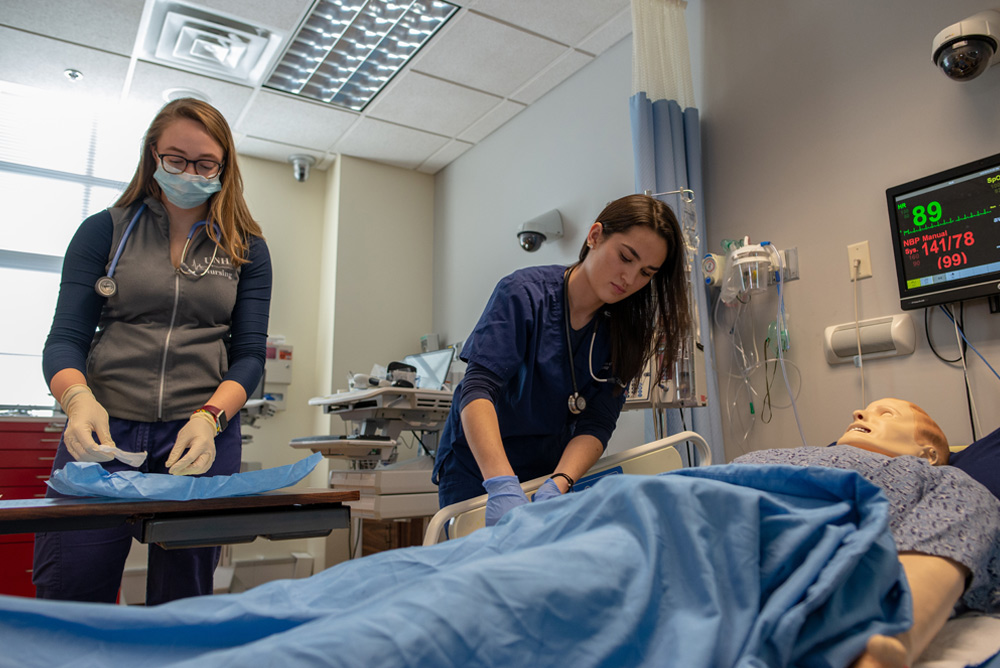
“While our commitment to interprofessional education was established decades ago,” says Gene Harkless, associate professor and chair of the nursing department, “the new center will provide the next level of education that is invaluable in terms of bringing our students and faculty together in a high-tech environment, ensuring that our students are maximally prepared and competent.”
CHHS Dean Michael Ferrara notes that the state’s healthcare workforce shortage has come into even sharper focus during the COVID-19 pandemic — underscoring the ongoing critical need for both medical and behavioral health services. “The Health Sciences Simulation Center will allow us to bring together students in many disciplines to work in real-world clinical settings, promoting dialogue, conversations and co-learning,” he says. “This interprofessional approach is critical in preparing our students for more efficient and effective clinical internships and successful professional careers.”
Students are embracing the interprofessional education concept. Josh Routhier ’21G chose occupational therapy for its holistic view of client care and emphasizes the importance of collaboration between health majors that rarely interact with one another academically but work closely together in the field. “Interprofessional education promotes a deeper understanding of each health care provider’s role for patient care and how those roles blend together to create a truly comprehensive health care team that benefits patients and clients,” he says.
The HSSC also will play an important role in UNH’s ongoing effort to promote and embrace diversity, equity and inclusion, providing opportunities to conduct more realistic simulation cases that look at how individuals’ cultures and beliefs change the way care is provided. “It will give students an opportunity to work through cases that are realistic in clients’ intersectional identities and backgrounds,” says Alyssa Stutzman ‘21G. “In addition, the center will foster the opportunity for students in health-related majors to think about how we can make health care environments more accessible and equitable for people with physical and mental disabilities.”
Ferrara says the HSSC is a vital building block to attract top-notch students into critically needed health care professions, and over time will make it possible for UNH to double the number of graduates in its health sciences programs. The nursing program, which has grown steadily over the past several years, will be expanded to accept even more students, with a goal of graduating 130 BSN students each year.